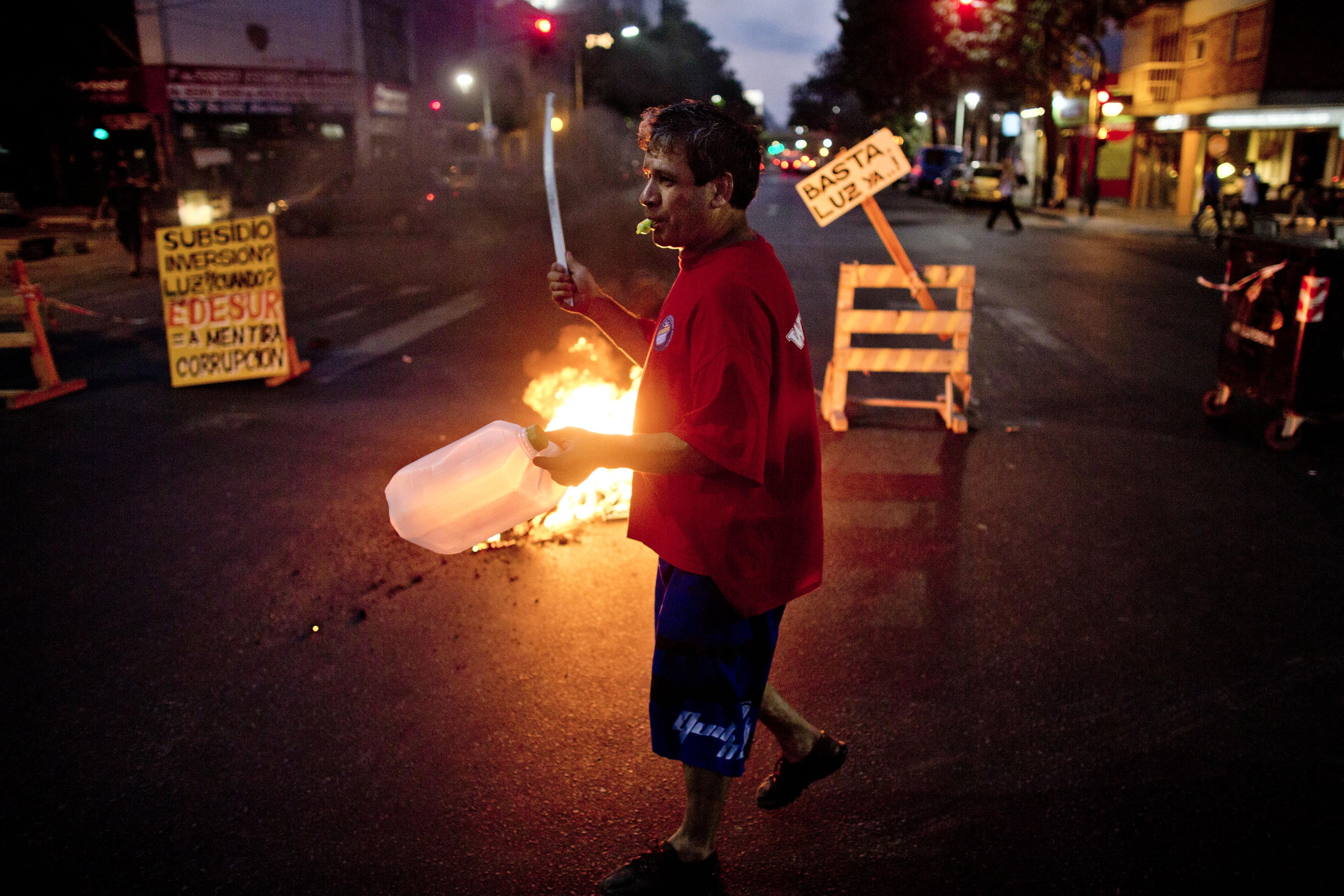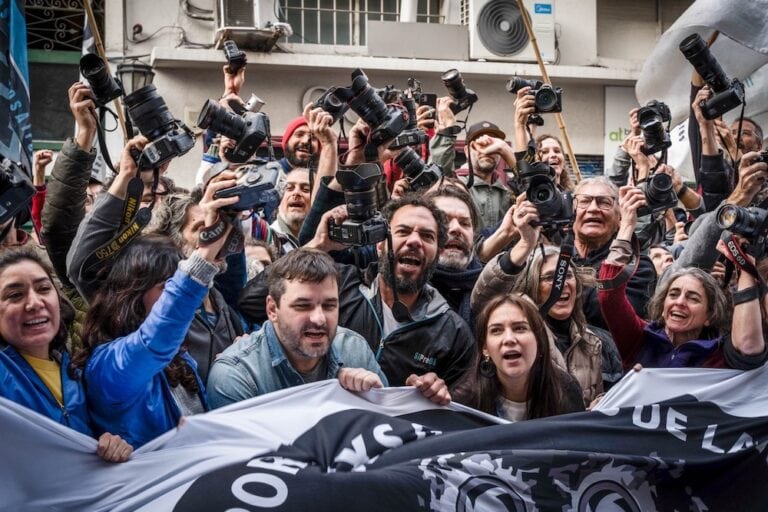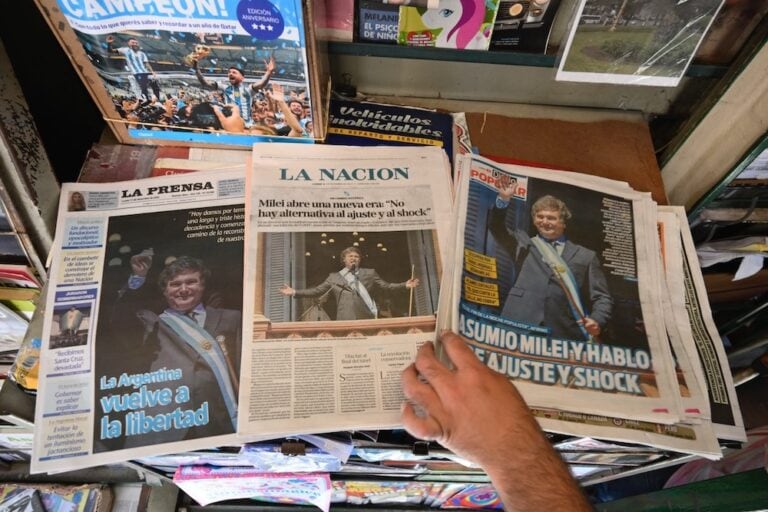Freelance photographer Brian Palacio was detained and beaten by gendarmes in Buenos Aires province while covering a protest against ongoing power cuts.
On 30 December 2013, freelance photographer Brian Palacio was detained and beaten by gendarmes (military officers) in Buenos Aires province while covering a protest against the ongoing power cuts in the capital city and surrounding areas. According to local IFEX member Foro de Periodismo Argentino (FOPEA), Palacio had started to take photos of the officers who were beating demonstrators near the Alto Avellaneda shopping centre. After being told to stop taking pictures, Palacio approached the gendarmes to tell them he would delete the photos. That was when they forced him into a van, drove him to a vacant lot, and held him for hours while beating him and threatening to throw him into the Riachuelo river.
Palacio, 25, told Reporters Without Borders (RSF) that he was threatened with further acts of revenge, including rape and torture, if he filed a complaint. The gendarmes robbed him of his camera and other equipment, which have still not been returned.
The photographer said that while he was being assaulted he had trouble breathing and thought that he might die. His captors eventually left him in a vacant lot and Palacio found out from some children nearby that he was in Wilde, Buenos Aires province. On the morning of 31 December, he made his way home and his parents took him to a medical centre, where spent four hours receiving treatment, including having a splint put on his left arm.
Palacio’s mother, Gabriela Flores, reported the attack on her son to the Avellaneda public prosecutor’s office on 31 December, and on 3 January Palacio filed another report with the office, despite the threats of retribution from his attackers. Although there are no witnesses to the beating he suffered, some of the demonstrators had seen him being detained by the gendarmes.
Unfortunately, the response from authorities has not been encouraging. Sergio Berni, secretary for National Security, told FOPEA that Palacio’s accusations “are completely false” and that the Gendarmerie had filed a complaint with the Federal Court to investigate Palacio’s allegations. He added that there were no witnesses or cameras to corroborate Palacio’s account and that Palacio’s family is suspected of making false reports. “Why would the Gendarmerie be bothered with a photographer?” he asked.
Berni said that if a federal judge found that Palacio was telling the truth, the gendarmes responsible would be punished, but that he thinks the accusations are false and that Palacio will end up being punished. When asked by FOPEA if his office had contacted Palacio for his version of events, the official said that since he had very little faith in the veracity of the photographer’s account, speaking to him directly was not warranted.
The attack on Palacio is one of many recent violent incidents against free expression in Argentina. Security forces in the country committed many abuses in 2013, including on demonstrators involved in police protests, and alleged spying on politicians and journalists by the army. “Abuses by the security forces …cannot continue,” says RSF, referring to the attack on Palacio. “The justice ministry must signal its determination to end impunity.”



